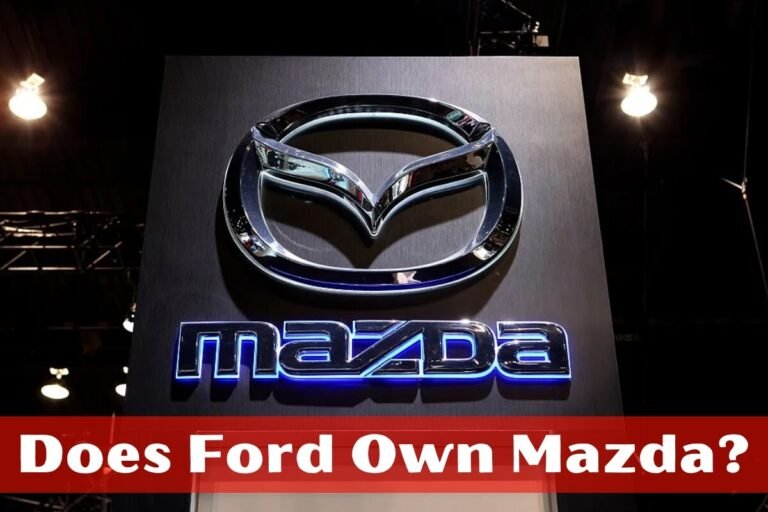Are Ford Explorers Reliable? The Truth About Its History

The Ford Explorer has been an iconic family SUV for decades, known for its spacious interior, rugged design, and versatility. As one of the longest-running nameplates in Ford’s lineup, the Explorer has built a reputation as a practical and capable vehicle. However, with so many model years spanning its history, the question of reliability becomes a complex one. Are Ford Explorers reliable? The short answer is: It depends on the specific model year, but some Explorers are more reliable than others.
Today in this article, we’ll take an in-depth look at the reliability of the Ford Explorer. We’ll analyze expert reviews, owner experiences, common problems, and the most and least reliable model years. By the end, you’ll have a better understanding of what to expect in terms of reliability if you’re considering purchasing a Ford Explorer.
Here’s what we’ll cover:
- What the experts say about Ford Explorer reliability
- Common Ford Explorer problems and repair costs
- The most reliable Ford Explorer years
- The least reliable Ford Explorer model years to avoid
- Does proper maintenance make a difference in reliability?
- Is buying an extended warranty worth it for the Ford Explorer?
- Boosting reliability with aftermarket accessories/modifications
- Reliability by Ford Explorer trim level
What The Experts Say About Ford Explorer Reliability
When it comes to evaluating a vehicle’s reliability, one of the best sources to turn to is expert reviews and ratings from organizations like Consumer Reports, J.D. Power, and others. These organizations conduct extensive surveys and analysis to determine how various models perform in terms of dependability.
Unfortunately, the Ford Explorer hasn’t fared particularly well in recent years when it comes to reliability ratings from experts. Consumer Reports, for example, has consistently rated the Explorer as one of the least reliable vehicles in its class, citing issues with the engine, transmission, steering, wheels, body integrity, and interior accessories.
In its latest reliability ratings, Consumer Reports gave the 2023 Ford Explorer a dismal predicted reliability score of just 1 out of 5, which is well below average. The review also noted a low owner satisfaction score of 2 out of 5, further compounding the Explorer’s reliability concerns.
J.D. Power’s Vehicle Dependability Study, which measures problems experienced by original owners of three-year-old vehicles, has also highlighted some reliability issues with the Ford Explorer. In the 2022 study, the Explorer ranked below average in its segment, with owners reporting more problems than many of its competitors.
While these expert ratings paint a somewhat grim picture of the Explorer’s reliability, it’s important to note that Ford has acknowledged the need for improvement and has set a goal of achieving best-in-class reliability by 2025 for select models, including the Explorer.
Common Ford Explorer Problems and Repair Costs
To better understand the reliability concerns surrounding the Ford Explorer, it’s helpful to take a closer look at some of the most common problems reported by owners. According to data from RepairPal, a trusted online repair resource, some of the most frequent issues with the Explorer include:
- Transmission Problems: Owners have reported issues with the Explorer’s transmission, such as rough shifting, slipping, and premature failure. Transmission repairs can be costly, with some owners reporting bills ranging from $2,000 to $4,000 or more.
- Engine Issues: While the Explorer’s engines are generally considered reliable, some owners have experienced problems with issues like failing timing chains, blown head gaskets, and excessive oil consumption.
- Body Integrity Problems: Several owners have reported issues with the Explorer’s body integrity, including water leaks, wind noise, and problems with the liftgate and doors.
- Electronic Issues: As with many modern vehicles, the Explorer’s electronic systems can sometimes experience glitches or failures, leading to problems with features like the infotainment system, climate control, and driver-assist technologies.
According to RepairPal, the average annual repair cost for a Ford Explorer is around $732, which is higher than the average of $573 for midsize SUVs. Additionally, there is a 14% chance that a repair on an Explorer will be considered “severe,” which is slightly higher than the 13% average for midsize SUVs.
It’s important to note that these are just averages, and individual repair costs can vary greatly depending on the specific issue, the age and mileage of the vehicle, and the labor rates in your area. However, these figures do highlight the potential for higher-than-average repair costs for Explorer owners.
The Most Reliable Ford Explorer Years
While the overall reliability ratings for the Ford Explorer may not be stellar, there are certain model years that stand out as being more dependable than others. Here are some of the most reliable Ford Explorer years, according to experts and owner experiences:
- 1993 Ford Explorer: The first-generation Explorer, introduced in 1991, is often cited as one of the most reliable models in the Explorer’s history. These early Explorers were known for their simple yet robust design and relatively few major issues.
- 2010-2012 Ford Explorer: The fifth generation of the Explorer, which debuted in 2011, marked a significant improvement in terms of reliability and build quality. Both the 2010 and 2011 models are considered among the most reliable Explorers in recent years, with fewer common issues reported by owners.
- 2019 Ford Explorer: While the current sixth-generation Explorer hasn’t been without its issues, the 2019 model stands out as one of the more reliable options in the lineup. Many owners have reported fewer problems with the 2019 Explorer compared to other recent model years.
It’s worth noting that even the most reliable model years of the Ford Explorer are not immune to potential issues, especially as the vehicles rack up higher mileage. However, owners of these specific year models have generally reported fewer significant problems and lower overall repair costs compared to other Explorer years.
The Least Reliable Ford Explorer Model Years to Avoid
On the flip side, there are certain Ford Explorer model years that have gained a reputation for being particularly problematic when it comes to reliability. If you’re considering purchasing a used Explorer, it’s generally advisable to steer clear of the following model years:
- 2002 Ford Explorer: The 2002 Explorer is often cited as one of the least reliable models in the Explorer’s history. It was plagued by a range of issues, including transmission problems, suspension issues, and various electrical gremlins.
- 2003-2004 Ford Explorer: Like the 2002 model, the 2003 and 2004 Explorers were also subject to numerous reliability concerns, with many owners reporting similar transmission, suspension, and electrical issues.
- 2020 Ford Explorer: While the current sixth-generation Explorer has improved in some areas, the 2020 model was particularly problematic, with widespread reports of quality control issues, transmission problems, and other mechanical gremlins.
It’s essential to exercise caution when considering used Explorers from these model years, as they may require more frequent and costly repairs compared to other years. Additionally, these models may have higher maintenance costs due to the increased likelihood of needing to replace various components more frequently.
Does Proper Maintenance Make a Difference in Reliability?
While some model years of the Ford Explorer are undoubtedly more reliable than others, it’s important to note that proper maintenance plays a crucial role in maximizing the reliability of any vehicle, regardless of its model year or initial build quality.
Regular maintenance, such as oil changes, fluid flushes, brake inspections, and other scheduled services, can help prevent many common issues from occurring or becoming more severe. Additionally, addressing any problems or warning signs promptly can often save significant costs down the line.
According to Ford’s recommended maintenance schedule, Explorer owners should expect to incur the following typical maintenance costs:
- Oil changes (every 7,500 miles or 12 months): $30-$50
- Tire rotations (every 7,500 miles): $20-$50
- Brake pad replacements (every 30,000-60,000 miles): $300-$500
- Timing belt replacement (every 60,000-100,000 miles): $500-$1,000
- Spark plug replacement (every 60,000-100,000 miles): $200-$400
While these maintenance costs may seem substantial, they pale in comparison to the potential repair bills that can result from neglecting routine maintenance. Moreover, using high-quality parts and having maintenance performed by experienced, Ford-certified mechanics can further enhance the Explorer’s reliability and longevity.
Is Buying an Extended Warranty Worth It for the Ford Explorer?
Given the potential reliability concerns and repair costs associated with the Ford Explorer, many buyers may wonder if purchasing an extended warranty is a worthwhile investment. An extended warranty, also known as a vehicle service contract, provides additional coverage beyond the factory warranty, typically for a specified number of years or miles.
The decision to purchase an extended warranty for a Ford Explorer largely depends on a few key factors:
- The model year and reliability history: As we’ve discussed, some Explorer model years are more prone to reliability issues than others. If you’re considering an Explorer from a model year known for frequent problems, an extended warranty may provide valuable peace of mind and financial protection against costly repairs.
- Your ownership and driving habits: If you plan to keep your Explorer for an extended period or rack up higher-than-average mileage, an extended warranty can help mitigate the risks associated with aging components and wear and tear.
- The cost of the warranty versus potential repair costs: Extended warranties can be expensive, often costing thousands of dollars. It’s essential to weigh the cost of the warranty against the Explorer’s average repair costs and the likelihood of experiencing significant issues based on its reliability history.
Many owners have found that extended warranties for the Ford Explorer can be worth the investment, especially for those who plan to keep their vehicles for several years or drive them extensively. However, others have reported that the warranties didn’t provide sufficient value, as they never experienced any significant issues that would have been covered.
Ultimately, the decision to purchase an extended warranty comes down to personal preference, budget, and risk tolerance. It’s advisable to thoroughly research the terms and exclusions of any extended warranty and compare options from various providers to ensure you’re getting the best value.
Boosting Reliability with Aftermarket Accessories/Modifications
While proper maintenance and choosing the right model year are crucial for maximizing the reliability of a Ford Explorer, some owners may also consider aftermarket accessories or modifications to potentially enhance dependability further.
One popular modification among Explorer enthusiasts is the installation of aftermarket performance tuners or programmers. These devices can help optimize the engine’s performance and efficiency, potentially reducing strain on various components and improving overall reliability.
Additionally, heavy-duty suspension components, such as upgraded shocks, struts, or control arms, can help improve the Explorer’s handling and reduce wear on suspension components, particularly for those who engage in off-road activities or frequently carry heavy loads.
However, it’s essential to exercise caution when considering any aftermarket modifications. While some reputable products may enhance reliability, others can potentially void warranties or introduce new issues if not installed or tuned properly. It’s always advisable to consult with experienced mechanics or forums dedicated to the Ford Explorer to ensure any modifications are safe and compatible with your specific model.
Reliability by Ford Explorer Trim Level
While reliability data is often presented based on model years, it’s also worth considering whether certain trim levels of the Ford Explorer tend to be more or less reliable than others.
In general, higher trim levels of the Explorer, such as the Limited, Platinum, and ST models, tend to have more advanced features and technologies compared to the base models. While these additional features can enhance the driving experience, they can also introduce more potential points of failure.
That being said, there is limited concrete data suggesting significant reliability disparities between different Explorer trim levels. Most of the reported issues seem to be relatively consistent across the range, with the exception of performance-oriented models like the ST, which may be more prone to issues related to their more powerful engines and sportier suspensions.
Ultimately, the trim level you choose for your Ford Explorer should be based primarily on your desired features and budget, rather than perceived reliability differences. As long as you maintain the vehicle properly and choose a model year with a decent reliability track record, the trim level is unlikely to be a major factor in overall dependability.
Let’s Complete
The Ford Explorer has had a storied history, with some model years standing out as reliable workhorses and others plagued by various issues. While the Explorer’s overall reliability ratings may not be stellar, it’s clear that proper maintenance, choosing the right model year, and being an informed buyer can go a long way in maximizing the dependability of this iconic SUV.
If you’re in the market for a Ford Explorer, it’s advisable to focus your search on the most reliable model years, such as the 1993, 2010-2012, and 2019 models. Alternatively, if you’re considering an Explorer from a less reliable year, be prepared for the potential of higher repair costs and more frequent trips to the mechanic.
Ultimately, the decision to purchase a Ford Explorer should be based on a careful evaluation of your specific needs, budget, and willingness to accommodate potential reliability concerns. With proper research and care, the Explorer can be a reliable and practical choice for families or individuals seeking a versatile and capable SUV.






